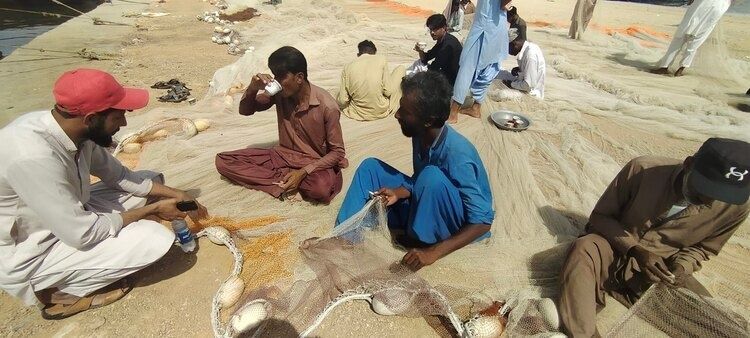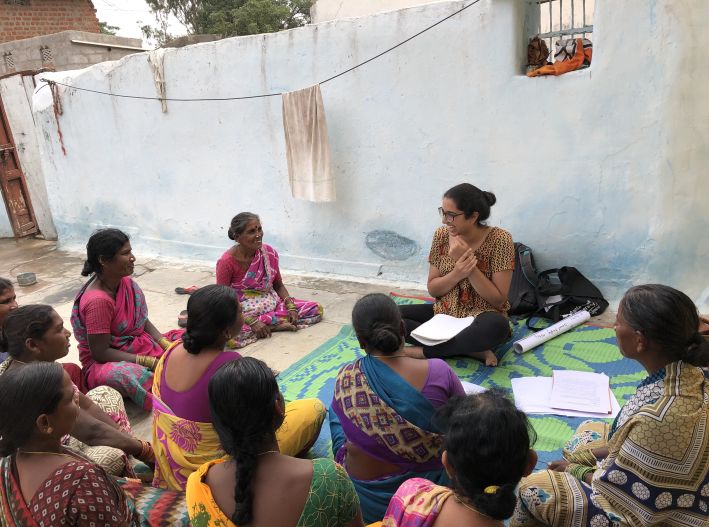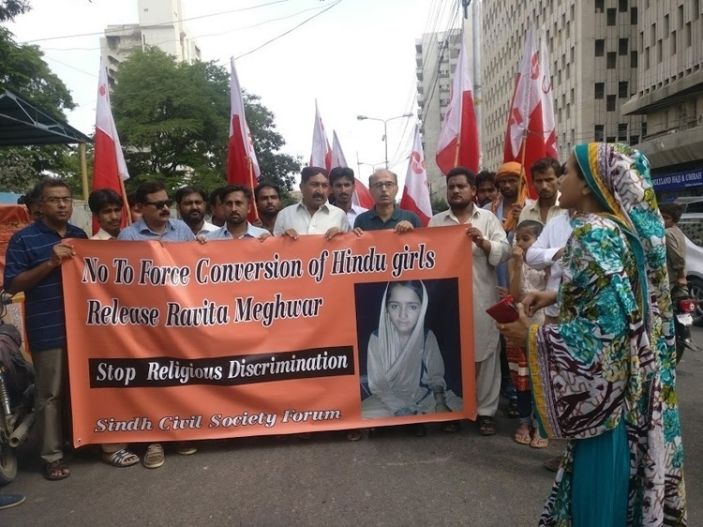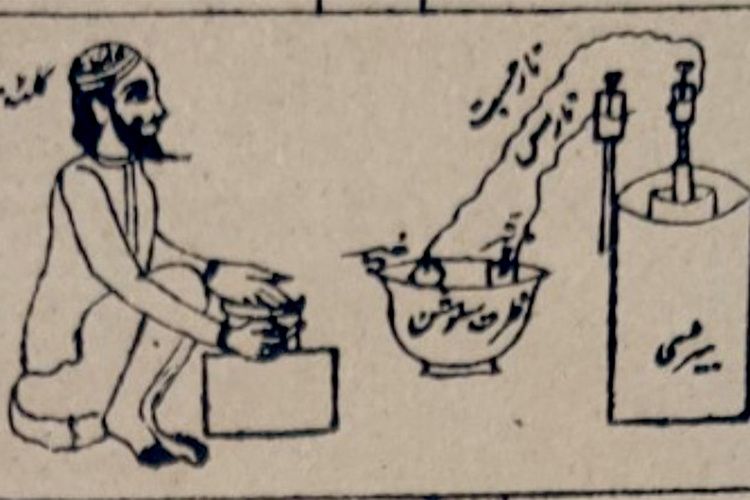South Asia Program
Environmental Exception and Martyrdom in Sindh, Pakistan

March 10, 2025
12:15 pm
Uris Hall, G08
Talk by Abdul Haque Chang (Social Sciences, Institute of Business Administration, Karachi)
This talk shows how in Sindh, the state of environmental exception has become the norm for governance (as in Agamben's formulation regarding the suspension of law). Specifically, this state of exception refers to a situation where necessity takes precedence over the law, resulting in a gap in the legal system. As a result, a zone of indistinction exists where environmental exception has become Pakistan's governance paradigm in Sindh. Through ethnographic experiences from the Indus Delta, coastal areas of Sindh, urban housing projects, and the land acquisition of Indigenous inhabitants by housing tycoons, this study illustrates how ecological martyrdom is occurring in Sindh due to environmental exception. This study demonstrates how the debates surrounding man-made and nature-based climate change should be located within the broader context of state governance policies in Pakistan, particularly regarding their effects on Sindh. The discussion highlights how the experiences and histories of local communities, along with the processes of urban development in Karachi and Sindh, have impacted specific populations in the pursuit of creating a utopian urban infrastructure that benefits other populations in Pakistan.
Abdul Haque Chang is an Assistant Professor of Anthropology at the Institute of Business Administration (IBA) in Karachi, Pakistan. His ethnographic research focuses on religion, Sufism, music, and environmental anthropology in Sindh, Pakistan, and Java, Indonesia. He is currently working on a book manuscript that explores the concept of "environmental exception" in Sindh, specifically regarding the practice of sacrifice in the context of environmental degradation. Chang has conducted ethnographic research on Sufi music in Sindh, particularly on Shah Jo Raag, a Sufi musical tradition. He studies Javanese Sufism in Indonesia through his project "Jathilan: Performativity and the (Re)Production of Javanese Sacrality." This project highlights how Javanese performance art challenges gender norms and serves as a form of cultural resistance.
Additional Information
Program
Einaudi Center for International Studies
Southeast Asia Program
South Asia Program
Funding Research-Related Travel

Tips from the Graduate School
Grad students: The Einaudi Center offers a range of global funding opportunities to support you—from your first year to your final semester.
Additional Information
Information Session: Fulbright U.S. Student Program for Undergraduates

February 24, 2025
4:45 pm
The Fulbright U.S. Student Program supports U.S. citizens to study, conduct research in any field, or teach English in more than 150 countries. Students who wish to begin the program immediately after graduation are encouraged to start the process in their junior year. Recent graduates are welcome to apply through Cornell.
The Fulbright program at Cornell is administered by the Einaudi Center for International studies. Applicants are supported through all stages of the application and are encouraged to start early by contacting fulbright@einaudi.cornell.edu.
Register here. Can't attend? Contact fulbright@einaudi.cornell.edu.
Additional Information
Program
Einaudi Center for International Studies
Reppy Institute for Peace and Conflict Studies
East Asia Program
Southeast Asia Program
Latin American and Caribbean Studies
Institute for African Development
Institute for European Studies
South Asia Program
Migrations Program
Information Session: Global PhD Research Awards and Dissertation Proposal Development Program

February 20, 2025
5:00 pm
The Amit Bhatia ’01 Global PhD Research Awards fund international fieldwork to help Cornell students complete their dissertations. Through a generous gift from Amit Bhatia, this funding opportunity annually supports at least six PhD students who have passed the A exam. Recipients hold the title of Amit Bhatia ’01 Global PhD Research Scholars. All disciplines and research topics are welcome. The award provides $10,000 to be used by the end of the sixth PhD year for international travel, living expenses, and research expenses. Applications are due March 7, 2025.
The Einaudi Dissertation Proposal Development Program supports 12 students over the course of a year to participate in seminars, workshops, and mentoring sessions and receive up to $5,000 for summer research. Applicants’ research projects must focus on global issues, but the proposed research setting may be international or domestic. In addition to six weeks of summer research, the program includes community-building and mentoring events. Applications are due by March 2, 2025.
Register here. Can't attend? Contact programs@einaudi.cornell.edu.
Additional Information
Program
Einaudi Center for International Studies
Reppy Institute for Peace and Conflict Studies
East Asia Program
Southeast Asia Program
Latin American and Caribbean Studies
Institute for African Development
Institute for European Studies
South Asia Program
Migrations Program
Individuating Identity in Postcolonial Pakistan

April 28, 2025
12:15 pm
Uris Hall, G08
Talk by Zehra Hashmi (History and Sociology of Science, University of Pennsylvania)
This talk examines how and why Pakistan’s national biometric-based identification regime came to use an individual’s blood relations to construct and track uniquely identified individuals. Through the concept of datafied kinship, it proposes that the uses of kin networks in Pakistan’s identity database, as information, can reconfigure our understanding of contemporary identification practices at large: individual identity is generated and tracked through relatedness, not unique bodily characteristics, or biometrics alone. To demonstrate this, it first examines how the database design works to construct identity through kin, and specifically how it excludes individuals on the basis of their kin through technological categories such as that of the “family intruder.” Second, it shows how this mode of individual identification differs and departs from the longstanding classificatory schemas that were so foundational to taxonomizing identity along the lines of caste, tribe, and religion in South Asia. It traces this diverging logic—between classification and individuation—to the emergence of individuating technologies in 1970s Pakistan, in the aftermath of the civil war between East Pakistan and West Pakistan, and during the escalating Cold War in the region. In so doing, it illustrates how the political stakes of Pakistan’s identification regime lie not only in its new possibilities for surveillance, a function of its individuating and tracking technology, or its classificatory refusal, but also in their interconnections.
Zehra Hashmi is an assistant professor in the History and Sociology of Science at the University of Pennsylvania. She is an anthropologist and historian who works on identification technologies in South Asia. Her research explores the everyday workings of securitization and surveillance in Pakistan through the intersection of identification, migration, kinship, and postcolonial and colonial governance. She received her PhD from the Interdepartmental Program in Anthropology and History at the University of Michigan.
Additional Information
Program
Einaudi Center for International Studies
South Asia Program
Seduced by God or Man? Framing Religious Conversions and Women’s Desire in Pakistan

April 14, 2025
12:15 pm
Uris Hall, G08
Talk by Ghazal Asif (Anthropology, Lahore University of Management Science)
For the past decade, the press in Pakistan has remained rife with stories of the kidnapping, forcible conversion to Islam, and marriages of young Hindu women at the hands of Muslim men. Women’s rights and minority advocacy groups have demanded a state-led response, but two attempts at legislation have already failed. In courts, legal redress requires a clear, visible difference between forcible abduction and what is termed “free will” elopement. However, these matters are complicated further when the very nature of Hindu women’s desires appears indeterminate. Accusations that young Hindu women have been seduced (warghalana) into conversion by Muslim men compete with claims that such women leave their natal homes upon becoming irrepressibly attracted to Islam and the Prophet. Drawing on an archive of conversions, elopements, and love affairs that I have been collecting since 2014, in this talk I problematize reductive binaries that focus only on the presence or absence of “free will”, to ask how hierarchies of il/licit desire feed into the public question of just who can claim control of young Hindu women’s bodies in Pakistan. I argue that the seeming unknowability of women’s desires underscores the entangled sexual and religious stakes at the heart of these events.
Ghazal Asif Farrukhi is an Assistant Professor of Anthropology at LUMS, Lahore. In 2024-25, she is a fellow at the Women’s Studies in Religion Program at Harvard Divinity School. Ghazal is currently completing a book manuscript provisionally titled Hindu Intimacies Amidst Pakistan’s Muslim State, which focuses on how Hindu women navigate ritual, devotional, and social boundaries while constituting the interface for the state-led reform of religiously minoritized communities. She also writes on the politics of caste emancipation in Pakistan. Her research has been published in American Ethnologist, Inter-Asian Cultural Studies, and South Asia: Journal of South Asian Studies.
Additional Information
Program
Einaudi Center for International Studies
South Asia Program
“Have They Seen God in Cosmos?”: Science, Religion and Postcolonial Curiosities

April 7, 2025
12:15 pm
Uris Hall, G08
Talk by Renny Thomas (Sociology & Social Anthropology, Indian Institute of Science Education and Research Bhopal)
My book, Science and Religion in India: Beyond Disenchantment (2021), explored ethnographically, the various ways in which Indian scientists lived their religious and scientific lives. In this lecture, I attempt to examine conversations and debates from the early days of space science in India by examining how different Indian stakeholders responded to the new developments in understanding the cosmos and how they imagined space and space science. The ISRO, or the Indian Space Research Organization is one of the largest and generously funded techno-scientific projects in post-colonial India with many successes, ups and downs. The intention of this lecture is not to discuss the case of ISRO. Instead, the lecture examines the early days of ‘space science’; the small history of a big scientific project in modern India. Based on archival sources, I look at how the cosmos and space were discussed in the parliamentary debates and the curiosity it generated among various actors in the early 1960s. The lecture analyzes the nature of those debates to see how space science was imagined religiously and how categories from religion were employed to describe the nature of space, cosmos, and space science.
Renny Thomas is currently the Taki Visiting Global Professor at the Gallatin School of Individualized Study, New York University (NYU-Gallatin), New York (2024-2025) and an Assistant Professor of Sociology and Social Anthropology at the Department of Humanities and Social Sciences, Indian Institute of Science Education and Research (IISER) Bhopal, Madhya Pradesh, India. He has been a Charles Wallace Fellow in Social Anthropology at Queen’s University Belfast, Northern Ireland, UK (2017-2018), and a Visiting Fellow at the Department of Cultural Anthropology and Cultural History at Friedrich-Schiller University-Jena, Germany (2022-2023). He is the author of Science and Religion in India: Beyond Disenchantment (Routledge, 2021), and co-editor of Mapping Scientific Method: Disciplinary Narrations (Routledge, 2022), Religion and Technology: Power, the Sacred, and the Digital (forthcoming), and Decolonial Keywords: South Asian Thoughts and Attitudes (forthcoming).
Additional Information
Program
Einaudi Center for International Studies
South Asia Program
Pious Labor: Islam, Artisanship, and Technology in Colonial India

April 21, 2025
12:15 pm
Uris Hall, G08
Talk by Amanda Lanzillo, (Department of South Asian Languages and Civilizations, University of Chicago)
In the late nineteenth and early twentieth centuries, laborers across northern India found themselves negotiating rapid industrial change, emerging technologies, and class hierarchies. In response to these changes, Indian Muslim artisans asserted the relationships between their religion and their labor, using the increasingly accessible popular press to redefine and reclaim Islamic traditions “from below.” In this talk, Amanda Lanzillo shares stories from her recently published book, Pious Labor, that reveal how Muslim artisan workers in India claimed the centrality of their own embodied and textual knowledge to the colonial industrial economy. The talk focuses especially on the trades of tailoring, print work, and stonemasonry. It draws on Urdu-language technical manuals, community histories, and poetry that circulated among workers in these fields. Through these texts, the talk explores how Muslim laborers contested their marginalization within colonial-era hierarchies of technical and religious knowledge through claims on Islamic pasts and practices.
Amanda Lanzillo is an Assistant Professor in the Department of South Asian Languages and Civilizations at the University of Chicago. She is a historian of labor, technology, and religion, and is the author of Pious Labor: Islam, Artisanship, and Technology in Colonial India (University of California Press, 2024). Amanda is also a fellow of the American Council of Learned Societies, researching a second book project about Afghan migration and labor in British India and the Indian Ocean world. She has published in peer reviewed journals including Modern Asian Studies, South Asia, the Journal of Social History, and the Journal of the Royal Asiatic Society, among others. Amanda also frequently writes about South Asian social history for the popular media, including in a series on artisan and laboring histories in The Wire co-authored with Arun Kumar.
Additional Information
Program
Einaudi Center for International Studies
South Asia Program
Prophetic Maharaja: Loss, Sovereignty, and the Sikh Tradition in Colonial South Asia

March 3, 2025
12:15 pm
Uris Hall, G08
Talk by Rajbir Judge, (History, California State University, Long Beach)
How do traditions and peoples grapple with loss, particularly when it is of such magnitude that it defies the possibility of recovery or restoration? Rajbir Singh Judge offers new ways to understand loss and the limits of history by considering Maharaja Duleep Singh and his struggle during the 1880s to reestablish Sikh rule, the lost Khalsa Raj, in Punjab. Sikh sovereignty in what is today northern India and northeastern Pakistan came to an end in the middle of the nineteenth century, when the British annexed the Sikh kingdom and, eventually, exiled its child maharaja, Duleep Singh, to England. In the 1880s, Singh embarked on an abortive attempt to restore the lost Sikh kingdom. Judge explores not only Singh’s efforts but also the Sikh people’s responses—the dreams, fantasies, and hopes that became attached to the Khalsa Raj. He shows how a community engaged in military, political, and psychological loss through theological debate, literary production, bodily discipline, and ethical practice in order to contest colonial politics. This book argues that Sikhs in the final decades of the nineteenth century were not simply looking to recuperate the past but to remake it—and to dwell within loss instead of transcending it—and in so doing opened new possibilities. Bringing together Sikh tradition, psychoanalysis, and postcolonial thought, Prophetic Maharaja provides bracing insights into concepts of sovereignty and the writing of history.
Rajbir Singh Judge is an Assistant Professor of History at California State University, Long Beach, and, during this academic year, a Member of the School of Social Science at the Institute for Advanced Study in Princeton. His first book, Prophetic Maharaja: Loss, Sovereignty, and the Sikh Tradition in Colonial South Asia was published by Columbia University Press in September 2024. His previous publications have appeared in numerous journals including Comparative Studies of South Asia, Africa, and the Middle East, Modern Asian Studies, Theory & Event, positions: asia critique, Cultural Critique, History & Theory, and the Journal of the History of Sexuality, among others.
Additional Information
Program
Einaudi Center for International Studies
South Asia Program
Rights, Sovereignty, and Resistance: Rethinking the Cantonment in Colonial South Asia

March 17, 2025
12:15 pm
Uris Hall, G08
Talk by Prashant Kidambi (History, University of Leicester )
Cantonments were a ubiquitous symbol of the military origins and underpinnings of British rule in South Asia. This talk, based on new research, seeks to rethink existing approaches to the study of cantonments. It critiques perspectives that view cantonments as sealed-off sites of untrammelled colonial power, abstracted from the historical processes shaping the wider society. My analytical framework brings politics back into the study of these putatively ‘military’ zones and restores agency to those who have hitherto been construed primarily as the malleable objects of colonial disciplinary power. In the process, I underscore the significance of cantonments in the making of urban South Asia.
Prashant Kidambi is Professor of Urban History at the University of Leicester. Professor Kidambi’s research explores how modern South Asia was shaped by empire and nation. He has written extensively on Indian cities, public culture, politics, and sports. He is the award-winning author of Cricket Country: An Indian Odyssey in the Age of Empire—the first work of sports history to be shortlisted for the prestigious Wolfson History Prize—and the editor of Bombay Before Mumbai, a path-breaking collection of essays on India’s ‘maximum city’. He is currently working on a new biography of the controversial Indian nationalist leader Bal Gangadhar Tilak (1856-1920).
Additional Information
Program
Einaudi Center for International Studies
South Asia Program
